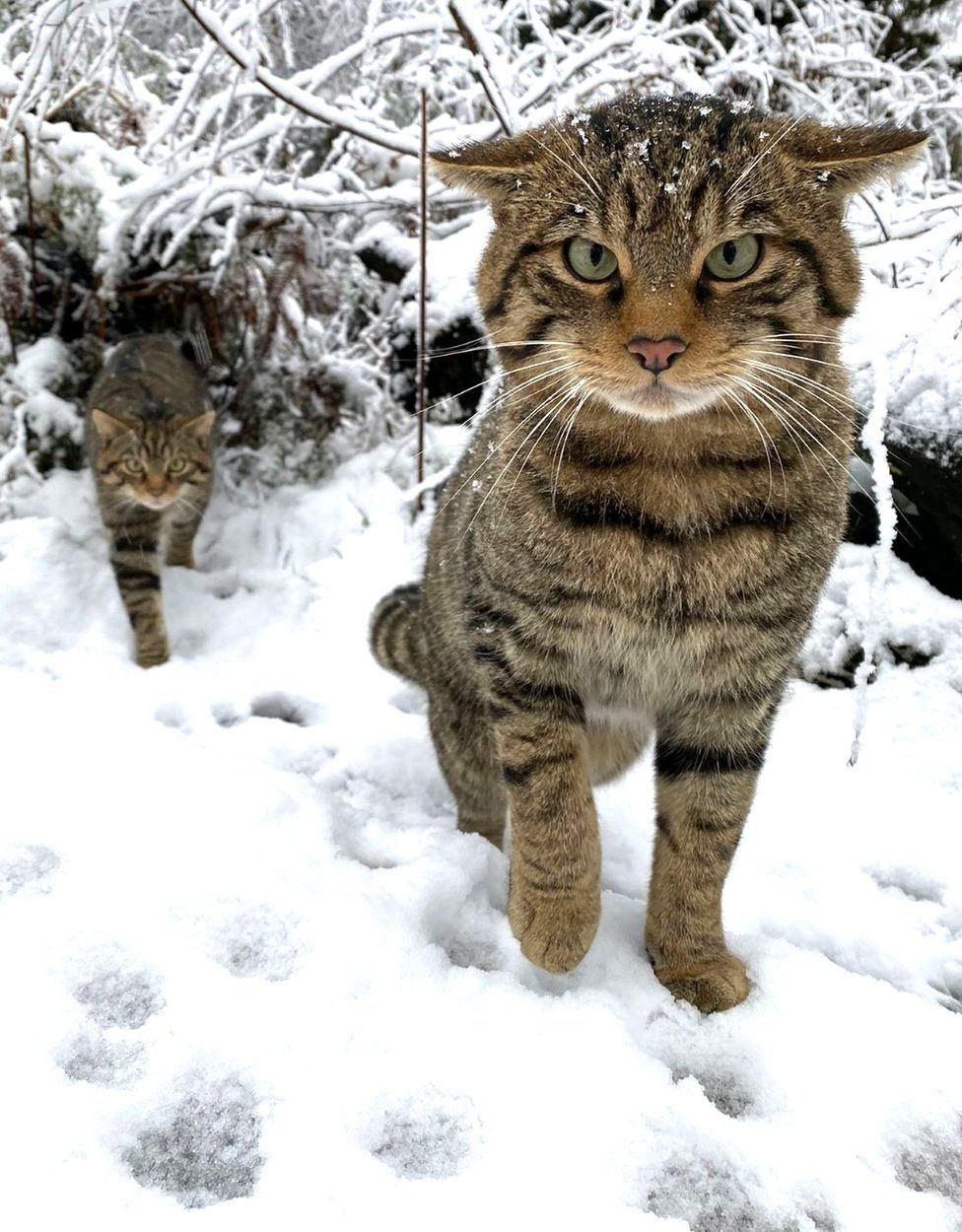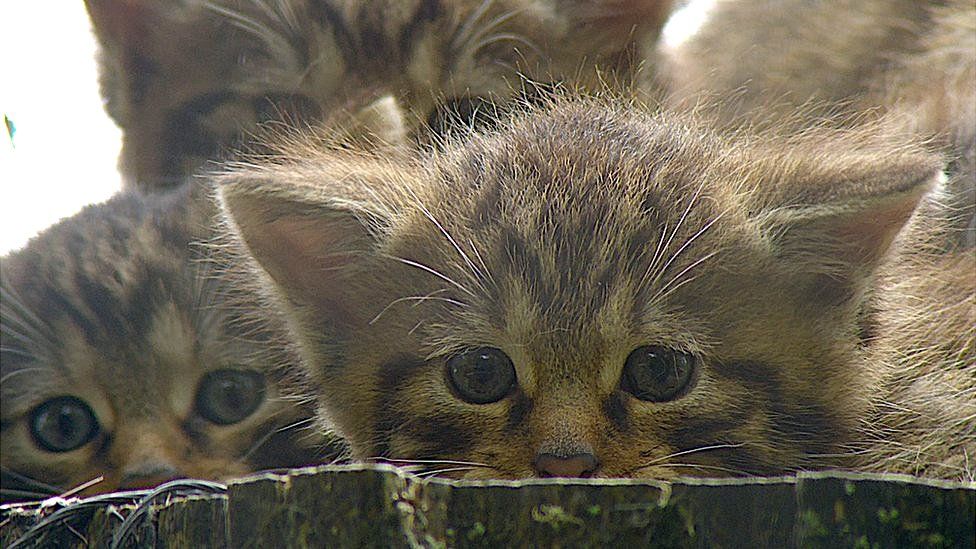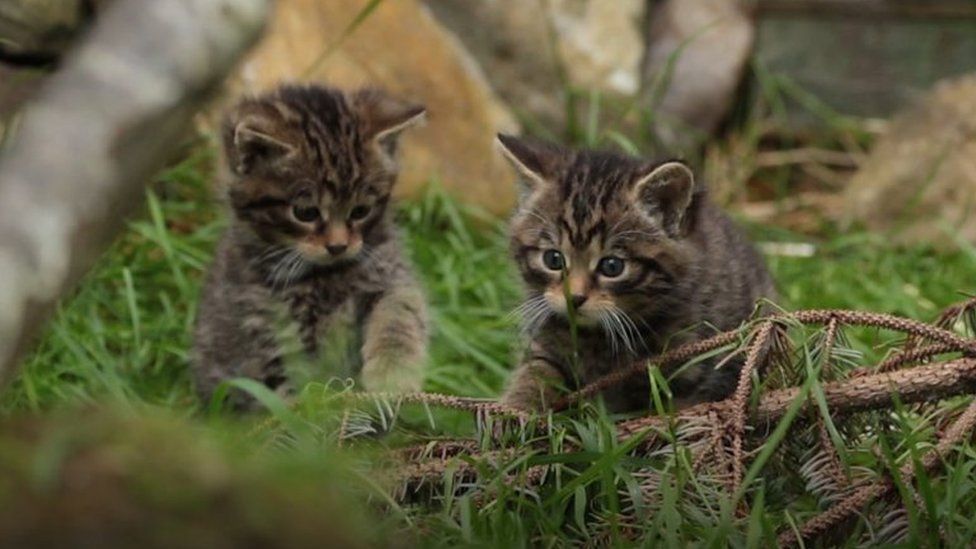This story sounds great until you realise that, in 1890, Scottish naturalists declared that the "true wild cat" was extinct by the 1860s and this is backed up by modern research. This is simply the legal introduction of a non native species.
Were these cats afforded full monitoring and protection with some backbone then it would be interesting. However, and I do really hope that I am wrong, I feel more than a few are going to end up as hunting trophies or shot because "I thought they were hybrids". Humans really have no right to reintroduce what they exterminated after a many centuries long campaign of felicide because it makes them think they are "restoring a natural predator" to "save a species" that died out around 150 years ago.
Scottish wildcats to be released in Cairngorms
https://www.bbc.co.uk/news/uk-scotland-highlands-islands-65065167?fbclid=IwAR3J0eFjH9KUN9qrkgrUNtIieQ09MHwtE7d9NoO-h6jrnlCLOFZssvcPX1A
A licence has been approved for the release of captive-bred Scottish wildcats in the UK's largest national park.
The first in a series of trial releases at undisclosed locations in the Cairngorms National Park is planned for June.
The Saving Wildcats project said it would be the first conservation translocation of wildcats in Britain.
Eventually, as many as 20 wildcats could be released annually.
There are wildcats in the wild in the Cairngorms, but the population is under threat.
According to research, the wild cat is on the brink of extinction. Breeding with feral domestic cats, disease and habitat loss have been blamed for reducing numbers.
Scotland's nature agency, NatureScot, approved the licence for this summer's release.
It assessed Saving Wildcats' application in line with the Scottish Code for Conservation Translocations.
The process considers a range of issues including animal welfare, site suitability and potential impacts on neighbouring and community interests.
Saving Wildcats, which involves a number of organisations, has been breeding the animals at Royal Zoological Society of Scotland's Highland Wildlife Park at Kincraig, near Aviemore.
The wildcats are to be released in a 232 sq mile (600 sq km) area involved in a landscape conservation project called Cairngorms Connect.
It is a partnership of neighbouring land managers - Wildland Limited, Forestry and Land Scotland, RSPB Scotland and NatureScot - working towards a 200-year vision to enhance habitat, species and ecological processes.
NatureScot's head of biodiversity, Dr Katherine Leys, said Saving Wildcats offered a lifeline for the species.
She said: "This journey is not without difficulty, and we know that there are more hurdles to overcome before we reach the point where we are ready to release the wildcats into carefully selected areas of the Cairngorms National Park.
"Once there, the wildcats will face further challenges, so it's crucial the project continues to work with local communities, farmers, land-owners and cat owners to ensure wildcats are given the best chance to survive and thrive."

Saving Wildcats project lead and Royal Zoological Society of Scotland's head of conservation, Dr Helen Senn, said: "When the time comes, we will be able to move wildcats under licence from pre-release enclosures at Highland Wildlife Park to carefully selected areas in the Cairngorms Connect landscape which provide a suitable mix of habitats and potential prey for the species.
"After release, the wildcats will be monitored using GPS collars as they face the many challenges of life in the wild."
She added: "The fight to restore Scotland's wildcat populations is just beginning and we are grateful to everyone providing expertise and support along the way."
Wildland Limited is a company owned by Danish billionaire Anders Holch Povlsen and his wife Anne.
Director of conservation Thomas MacDonell said the company was delighted to be part of the effort to restore wildcats.
Farming union, NFU Scotland, said NatureScot's approval of a licence was "fantastic news".
Policy manager Penny Middleton said: "As a supporter of the official body, the Scottish Wildcat Action forum, we have previously helped disseminate information on how to protect this iconic native species to our members in the priority areas identified for wildcats, including the Cairngorms National Park area.
"We recognise that the species remains critically endangered and that the plans through the Saving Wildcats project to preserve the species are starting to come to fruition."
She added: "The farming community in release areas will be keen to support these plans and identify how they can assist."











No comments:
Post a Comment